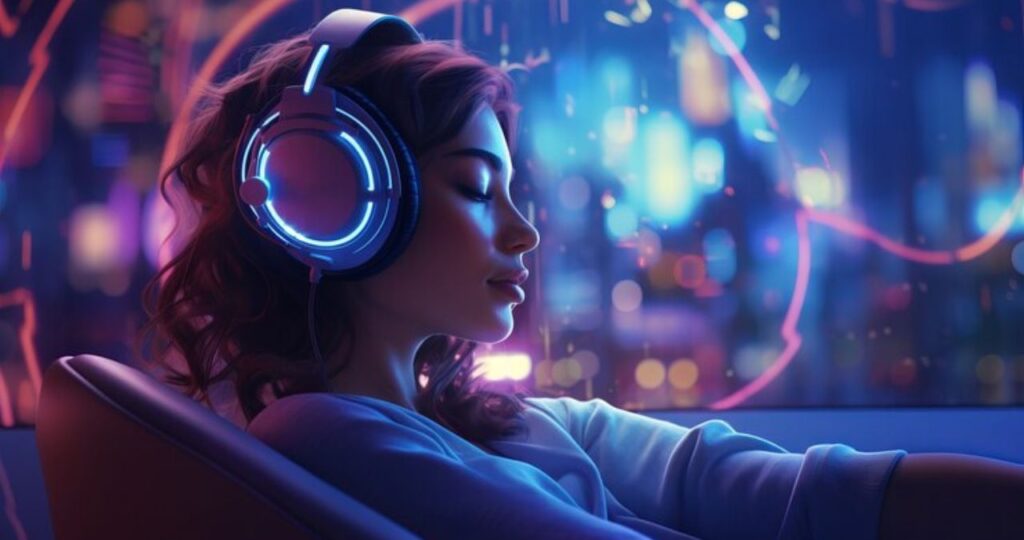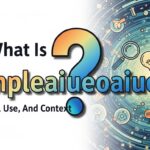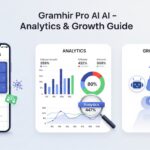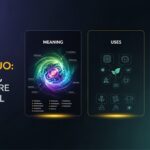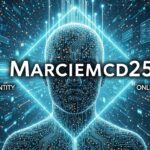The evolution of music has always been deeply intertwined with technology. From the invention of musical instruments to the rise of synthesizers and digital production software, each innovation has expanded the creative possibilities for artists. Today, the next big frontier in this progression is artificial intelligence. As musicians and producers explore new frontiers of creativity, tools that Create AI Music are becoming indispensable in reshaping how we think about sound, composition, and collaboration.
This article explores how AI music generators work, their benefits and challenges, key players in the space, and the future of AI-generated compositions.
What Is AI-Generated Music?
AI-generated music refers to musical compositions created with the assistance of artificial intelligence. These systems use machine learning models trained on thousands—sometimes millions—of existing musical samples, genres, styles, and structures. Based on this data, they generate melodies, harmonies, rhythms, and even lyrics that mimic human compositions.
Unlike traditional music software that requires manual input of every note or loop, AI tools can independently compose entire tracks based on simple prompts or desired moods. Whether you’re a professional producer or a hobbyist, AI music generators can save time and unlock new creative directions.
How Do AI Music Generators Work?
Most AI music tools are built on deep learning models, particularly Recurrent Neural Networks (RNNs) or Transformers, which are adept at analyzing and predicting sequences—an essential skill for generating music. Here’s a basic overview of how these tools function:
- Data Collection: The AI is trained on a large dataset of music. This can range from classical symphonies to EDM tracks.
- Pattern Recognition: The system learns patterns in chord progressions, melody structures, rhythm, and even production elements.
- Generation: When prompted, the AI uses its learned patterns to compose a new piece of music, often customizable by mood, tempo, genre, or instrumentation.
- Human Refinement: The generated piece can then be edited, mixed, and enhanced by a human musician or producer.
The goal isn’t always to replace human creativity but to augment it with novel ideas and efficiencies.
Why Artists and Producers Are Turning to AI
1. Rapid Prototyping
AI music generators allow artists to sketch out ideas quickly. Instead of spending hours experimenting with chord progressions, a musician can feed parameters into an AI tool and receive a rough draft of a track in seconds. This accelerates the creative process and enables more experimentation.
2. Overcoming Creative Blocks
Writer’s block or creative fatigue is a common challenge in music creation. AI tools offer unexpected results that can reignite inspiration. The randomness and uniqueness of AI-generated compositions often help creators break free from conventional thinking.
3. Cost-Effective Production
Hiring session musicians, producers, and studios can be expensive. AI tools offer a cost-effective alternative, especially for independent musicians and content creators looking to generate background scores or jingles.
4. Accessibility for Non-Musicians
Not everyone is classically trained or experienced in music theory. AI democratizes music creation, allowing individuals without formal training to produce high-quality tracks simply by selecting moods, genres, or instruments.
Applications Across Industries
Film and Media
AI-generated music is increasingly used in video production, advertising, and gaming. Royalty-free music generated via AI allows creators to avoid licensing headaches while maintaining high production quality.
Therapy and Healthcare
AI music has therapeutic applications as well. Music therapy platforms use AI to create calming or uplifting compositions for patients, based on mood or biometric feedback.
Education
Educators use AI music platforms to teach students about composition, structure, and genre. These tools act as interactive learning aids in music theory and production courses.
Gaming
Dynamic soundtracks powered by AI adjust in real time based on game context or player behavior, enhancing immersion and emotional impact.
Challenges of AI-Generated Music
1. Originality and Creativity
Critics argue that AI music lacks the emotional depth and intentionality of human-created works. AI tools can mimic existing styles but often struggle to create something truly original or emotionally resonant.
2. Copyright Concerns
Who owns an AI-generated piece of music? The user? The developer of the AI? The legality surrounding intellectual property rights in AI-generated content remains a gray area.
3. Ethical Considerations
If an AI is trained on copyrighted works, is its output derivative? Some musicians worry that AI tools essentially “borrow” from their original works without acknowledgment or compensation.
4. Loss of Human Element
There’s a fear among purists that an overreliance on AI could dilute the human touch in music. Music has historically been a deeply emotional and cultural expression—can a machine truly replicate that?
Major Players in the AI Music Space
Several platforms and companies are leading the charge in AI music generation:
- Adobe Express: Adobe offers a suite of creative tools, including features to Create AI Music, allowing users to generate custom tracks quickly and easily.
- Amper Music: A cloud-based platform that lets users compose and customize music using AI.
- Aiva: Specializes in creating classical and cinematic compositions using deep learning.
- Boomy: Allows users to create music in seconds and distribute it on major platforms.
- Soundraw: Offers genre-specific customization, perfect for video content creators.
These platforms vary in their complexity and customization, offering both beginner-friendly interfaces and advanced production tools for professionals.
The Future of Music Creation
The integration of AI into music creation isn’t a fad—it’s the beginning of a seismic shift in how we think about creativity, authorship, and artistry. As AI models become more sophisticated, we can expect:
- Real-time Composition: AI composing live music during performances or DJ sets based on audience reactions or biometric data.
- Hyper-Personalized Music: Tailored tracks for individual listeners based on preferences, mood, or even daily routines.
- Cross-Genre Experiments: AI enabling seamless fusion of disparate genres and cultural influences, resulting in entirely new forms of music.
- Collaborative AI Partners: Artists co-creating albums with AI as a ‘band member’ or ‘co-writer.’
Striking the Right Balance
AI music tools are best viewed as partners in creativity rather than replacements. They offer novel pathways and possibilities but should be guided by the intentionality and emotion of the human artist. As the tools mature, artists and audiences alike must navigate this new territory with curiosity, caution, and respect for both innovation and tradition.
Conclusion
The ability to Create AI Music isn’t just a technological novelty—it’s a paradigm shift in creative expression. From democratizing music production to transforming industries like advertising and healthcare, AI is composing the soundtrack of the future. Yet, like any tool, its power depends on how it’s wielded. Used thoughtfully, AI can help musicians not just replicate what’s been done but imagine what’s possible.
In the coming years, expect to see more collaborations between humans and machines, more hybrid compositions, and more debates about the role of AI in art. One thing is certain: the music of tomorrow will sound like nothing we’ve heard before—because it will be written by minds both human and artificial.

